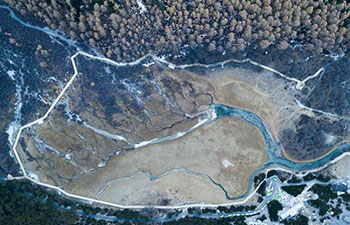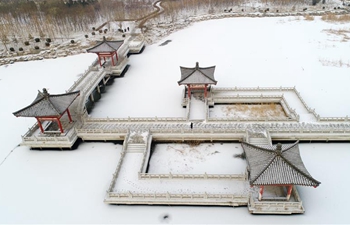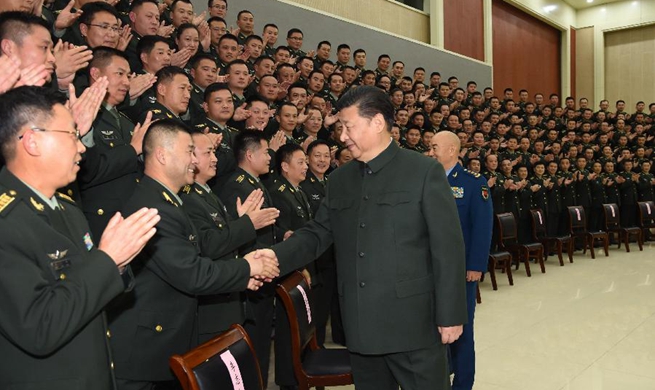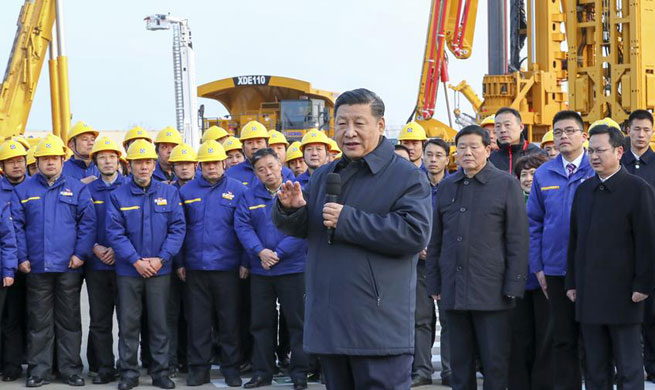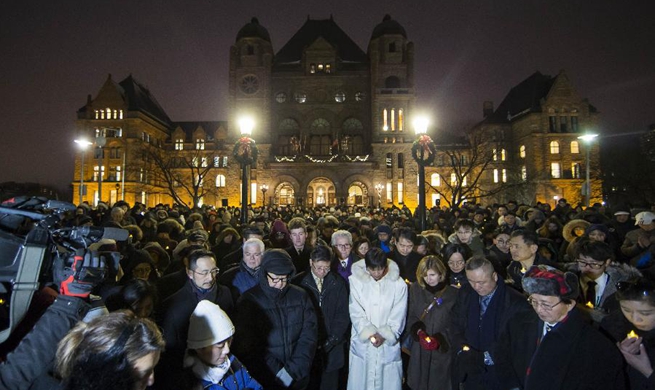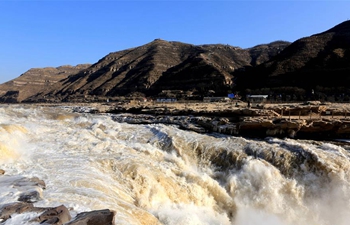by Eric J. Lyman
ROME, Dec. 14 (Xinhua) -- Election season in Italy is still a few months away, but the rally call of "fake news" that came to prominence during last year's presidential vote in the United States is already starting to make the rounds.
U.S. President Donald Trump has used the term "fake news" as a way to criticize unflattering news coverage, regardless of whether there is any question of its veracity. Now the term has been adopted -- in English -- by former Italian Prime Minister Matteo Renzi, who is hoping to reclaim his old job after a vote set to take place early next year.
Starting earlier this month, Renzi repeatedly criticized attacks against him from rival parties -- most notably the anti-establishment Five-Star Movement and the anti-migrant Northern League -- as "fake news."
"As a concept, 'fake news' has been around for years," Antonio Pilati, an economist and commentator on media issues who has authored a book entitled "Rivoluzione digitale e disordine politico" (Digital Revolution and Political Disorder), told Xinhua. "For example, the U.S. built a coalition to invade Iraq (in 2003) based on fake news about weapons of mass destruction. But now it's become a kind of catch-phrase."
According to Daniela Giannetti, a political scientist at the University of Bologna, the "fake news" phenomenon has grown in Italy and elsewhere due to several factors, including the popularity of social media that make it easier for political figures to communicate with their public without going through traditional media, and because of under-staffed news companies that are more prone to errors.
"This trend is becoming more pronounced and it's still too early to understand all the consequences," Giannetti said in an interview. She added that one casualty of the trend was likely to be the quality of political discourse.
"That is the other side of the same coin," she said. "If we get to a point where both sides of an argument just shout 'fake news' at the other, then it will be almost impossible to have any kind of worthwhile debate about important issues."
What is not clear is how much of a risk there is for Renzi, who heads Italy's center-left Democratic Party, to use a phrase coined by Trump, who champions right-oriented policies and who is unpopular in Italy.
But Pilati said he did not see much chance that Italian voters would begin to link the two men because of the shared phrase.
"That is not the kind of instinctual connection most potential voters are likely to make," Pilati said. "There are a lot of questions to be answered about the next election, but there's not a big chance that people will start to perceive similarities between Renzi and Trump."
The election is tentatively scheduled to take place March 4. Opinion polls show Renzi's Democratic Party running about even with the Five-Star Movement. Further behind are Forza Italia, the center-right party headed by billionaire tycoon and former Prime Minister Silvio Berlusconi, and the Northern League, followed by a handful of smaller parties.




